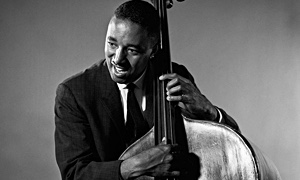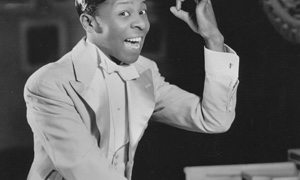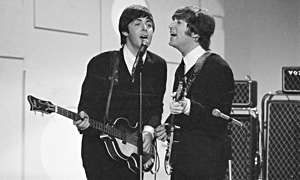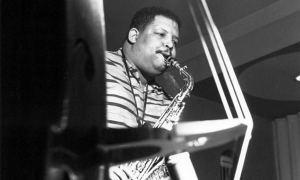Home » Jazz Articles » Book Review » The Jazz Composer: Moving Music Off The Paper
The Jazz Composer: Moving Music Off The Paper
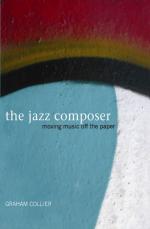 The Jazz Composer: Moving Music Off The Paper Graham Collier
The Jazz Composer: Moving Music Off The Paper Graham Collier Hardcover; 314 pages
ISBN: 978 09557888 0 2
Northway Books
2009
Bassist, composer and bandleader Graham Collier's preoccupation with form is itself, in a very literal sense, a central concern of this book: with the passage of time, Collier's music has grown ever more structurally sophisticated. Such is its depth in 2009 that it is hardly surprising that The Jazz Composer: Moving Music Off The Paper should resemble a polemic in support of that trajectory, even while it discusses how to take jazz beyond notated scores.
Happily for the reader, Collier is richly opinionated too, and his opinions are expressed in scholarly fashion. Thus his dismissal of trumpeter 
Wynton Marsalis
trumpetb.1961

Duke Ellington
piano1899 - 1974
Such nuances of opinion muddy the waters, but the debate about jazz form is, inescapably, of great complexity. About that Collier is eloquent without being verbose, even though many new millennial jazz composers strain his patience. At the heart of his argument is an appeal for creativity—a quality, Collier believes, of which there is a distinct lack in 2009.
The book is not, however, merely a display of personal opinions. In his preoccupation with "moving music off the paper," Collier is acutely aware of the implications of such an idea. He's of the same mind when it comes to the musicians charged with that job and how they add a dimension to the notes on paper. In discussing this, he makes a persuasive case for jazz as unique unto itself, even while it has always, and continues to, "borrow" from other musical forms with which it might appear to have little or nothing in common.
Creativity is integral to this argument, as it has been since 
Lester Young
saxophone
1909 - 1959
Coleman Hawkins
saxophone, tenor
1904 - 1969
It's that very individuality which has always been a mark of Collier's composing, and as a consequence this book is integral to his overall musical conception. Indeed, the continuity between Collier the composer of music and Collier the composer of text is pronounced. In both cases his lack of arrogance, in marked contrast to the Marsalis precedent, endears him to the reader, even in the face of his own trenchantly expressed opinions.
Tags
Comments
PREVIOUS / NEXT
Support All About Jazz
 All About Jazz has been a pillar of jazz since 1995, championing it as an art form and, more importantly, supporting the musicians who make it. Our enduring commitment has made "AAJ" one of the most culturally important websites of its kind, read by hundreds of thousands of fans, musicians and industry figures every month.
All About Jazz has been a pillar of jazz since 1995, championing it as an art form and, more importantly, supporting the musicians who make it. Our enduring commitment has made "AAJ" one of the most culturally important websites of its kind, read by hundreds of thousands of fans, musicians and industry figures every month.




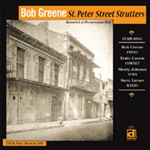



 Buy Now
Buy Now



